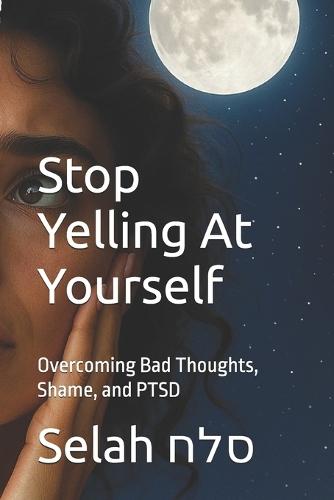Overview
Stop Yelling at Yourself is a powerful and compassionate guide to healing the voice inside that never learned how to speak kindly. Combining the insight of modern psychology with the spiritual wisdom of the 12-Step path, this book helps readers understand why self-criticism, shame, and chronic fear develop-and how to release them gently through awareness, forgiveness, and connection. Many trauma survivors, recovering addicts, and people living with anxiety or perfectionism have one thing in common: an inner voice that shouts instead of soothes. Stop Yelling at Yourself explains that this voice isn't proof of failure-it's proof of survival. Once, it helped us stay safe in unsafe places. Now, we can thank it, retrain it, and finally learn to live in peace. The book opens with a year of ""Happy Thoughts""-daily and monthly reflections that nurture joy, gratitude, and emotional balance. Each section is written to reorient the reader toward hope and to establish a rhythm of self-care and renewal throughout the seasons. From there, the author guides the reader through five major parts: Part I: Self-Criticism explores how shame and negative self-talk were once tools for control and protection. Readers learn how to transform the inner critic into an ally, discover the function of shame, and connect these insights to 12-Step principles of humility, honesty, and faith. Part II: Complex PTSD examines the core imprint of shame, the ""appeasement reflex,"" and how trauma imprints the nervous system. This section blends practical psychology with spiritual reframing-showing how old survival patterns can evolve into wisdom, empathy, and resilience. It also includes trauma-sensitive adaptations of the Fourth Step, including ""Harms Done to Self,"" and reflections such as Grateful for What Survived and A Prayer About PTSD. Part III: How to Meditate offers simple practices for calming the body, regulating emotions, and restoring clarity. Through breath, grounding, and mindfulness, readers learn to recognize when they are dysregulated and how to return to serenity. Part IV: Steps 4-7 walks readers through the moral inventory process-Resentments, Fears, and Harms-interpreted through a trauma-informed and compassionate lens. It helps readers tell their story safely, release guilt, and invite their Higher Power into deeper self-honesty and grace. Part V: Deshon's Dream and the book's closing reflections weave spirituality, symbolism, and forgiveness into an allegory of awakening. Stories of migrating creatures, holding hands, and reconciliation remind readers that healing is not about perfection-it's about remembering our shared humanity. Throughout Stop Yelling at Yourself, readers are reminded that recovery is not a linear process but a living relationship with self, spirit, and others. Every page offers a blend of emotional insight and spiritual grounding-reminding us that what once felt like weakness was often our greatest strength in disguise. Gentle, poetic, and deeply human, this book is for anyone who has ever felt trapped by self-criticism, haunted by the past, or unsure how to forgive themselves. It invites the reader to stop shouting inside and start listening for the still, small voice that says: You made it. You're safe now. Let's begin again.
Full Product Details
Author: Selah סלח
Publisher: Independently Published
Imprint: Independently Published
Dimensions:
Width: 15.20cm
, Height: 0.60cm
, Length: 22.90cm
Weight: 0.172kg
ISBN: 9798272304513
Pages: 120
Publication Date: 30 October 2025
Audience:
General/trade
,
General
Format: Paperback
Publisher's Status: Active
Availability: Available To Order

We have confirmation that this item is in stock with the supplier. It will be ordered in for you and dispatched immediately.



